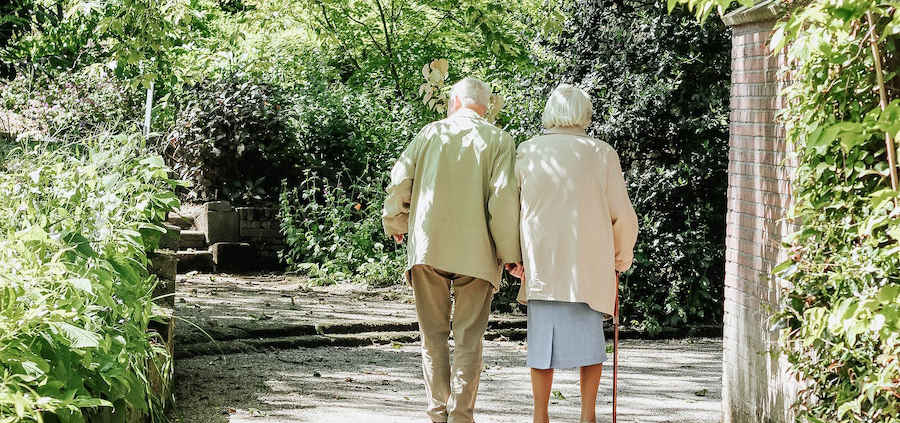The Spiritual and Psychological Aspects of Aging by Sarah A. Dolan
Aging is an unevenly unfolding process that involves the painful confrontations of death and the limitation of time. How one responds to aging varies from culture to culture and from individual to individual. According to some writers, it is the developmental task at this stage of life for a person to view his or her own death as the appropriate outcome of life. Death then does not become the submission to blind fate, but the acceptance of life’s end in terms of its fulfillment. In other words, if we are able to view our life as having been meaningful to us, we are able to enter this stage as well-integrated beings rather than with depression and despair.
According to psychologist Eric Erikson, the end of life is the time where we enter the final stage of our emotional development: integrity versus despair. This stage is triggered by: 1) the realization of one’s approaching death; 2) the recognition that it is too late to change one’s life in major ways; and 3) that it is too late to start over.
Somewhere between the ages of 40 and 50 years, we begin to turn inward and reflect on our lives. At midlife we come to terms with the fact that part of our life has already been lived and our focus is now on looking ahead on the years to come. This is an unconscious process which we have no control over. However, some of us can’t face that process. Men change wives for younger women. Women get facelifts and dress like their daughters. This is not an outward process, but many of us make it that rather than taking a deeper look inside of ourselves.
What is happening is that life is trying to prepare us for the next stage, and it has nothing to do with younger women or facelifts. Life is asking us to confront ourselves and to come to terms with the fact that the days ahead of us will be shorter than those that went before us.
We change in other ways also. Those of us who were introverts for the first half of our lives become more assertive. Those of us who were extroverts become more reflective. We are emotionally healthiest when our introverted and extroverted tendencies are balanced.
When we go through this midlife process in a healthy way, men will become more in touch with their feminine tendencies—the part they have denied during the first half of their life—which is their ability to be sensitive and nurturing. Women will become more in touch with the masculine side of themselves. They become more assertive about who they are and what they want. Some women who have been engaged in mothering and raising a family may feel their goals were interrupted and now wish to pursue a career.
Depression is very common today among older people. This can be caused by the death of a spouse, financial insecurity, family conflicts, or medical problems. Many older people experience feelings of helplessness, loss of self-esteem and confidence, and a decreased ability to gain pleasure.
Usually older people do not fear death, but the prospect of dying alone. In order for us to become emotionally healthy, it is important that each of us have at least one other person in our life with whom we share our most intimate thoughts and feelings. This is particularly necessary as we age so that we can have someone to comfort us and journey with us through the final stages of our life. If we can share our feelings with another person, together we can find ways of dealing with these issues. ♦
Sarah A. Dolan, Ph.D., is a clinical psychologist with a specialty in geriatric psychology.





Leave a Reply
Want to join the discussion?Feel free to contribute!